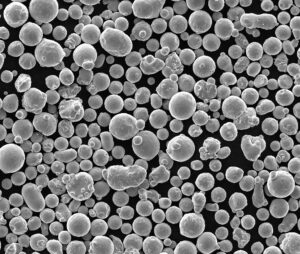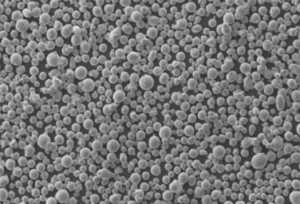Vue d'ensemble Poudre d'alliage de diffusion
Les poudres d'alliage de diffusion peuvent sembler compliquées, mais c'est un sujet fascinant qui comble le fossé entre la technologie de pointe et les applications pratiques dans diverses industries. Ces poudres sont les héros méconnus de secteurs tels que l'aérospatiale, l'automobile et l'électronique, car elles permettent d'améliorer les performances grâce à leurs propriétés uniques. Mais qu'est-ce que la poudre d'alliage de diffusion ? En termes simples, il s'agit d'un type de poudre métallique qui a été traité pour créer un mélange homogène de différents éléments, ce qui lui confère des propriétés mécaniques et physiques supérieures.
Dans ce guide, nous allons plonger dans le monde des poudres d'alliages de diffusion, en explorant leurs types, leurs compositions, leurs propriétés, leurs applications et bien plus encore. Que vous soyez un ingénieur en matériaux, un professionnel de la fabrication ou simplement quelqu'un qui s'intéresse de près aux matériaux avancés, cette vue d'ensemble complète vous fournira les informations dont vous avez besoin.
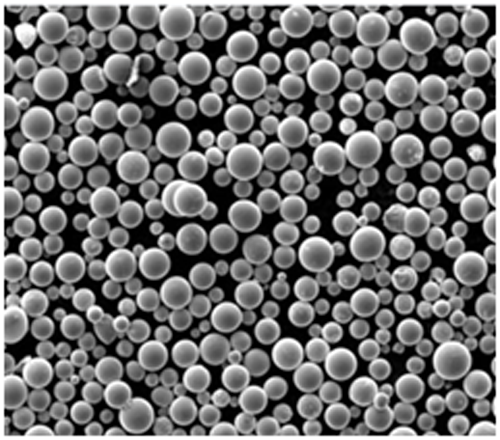
Types et composition des Poudre d'alliage de diffusion
Pour vraiment apprécier les merveilles des poudres d'alliage de diffusion, il est essentiel de comprendre leurs différents types et compositions. Pour plus de clarté, nous allons les présenter dans un tableau pratique.
Types de poudre d'alliage de diffusion
| Modèle de poudre métallique | Composition | Propriétés principales | Applications |
|---|---|---|---|
| Inconel 718 | Ni-Cr-Fe avec Nb, Mo, Ti et Al | Haute résistance, résistance à la corrosion | Aérospatiale, moteurs à turbine |
| Stellite 6 | Co-Cr-W-C | Résistance à l'usure, stabilité à haute température | Outils de coupe, valves, composants de moteur |
| Hastelloy X | Ni-Cr-Fe-Mo | Résistance à l'oxydation, résistance aux hautes températures | Moteurs à réaction, turbines à gaz |
| MP35N | Co-Ni-Cr-Mo | Haute résistance à la traction, résistance à la corrosion | Dispositifs médicaux, fixations pour l'aérospatiale |
| Triballoy T-800 | Co-Mo-Cr | Résistance extrême à l'usure, faible frottement | Paliers, composants de la pompe |
| Nimonic 90 | Ni-Cr-Co avec Ti et Al | Résistance aux températures élevées, résistance à l'oxydation | Aérospatiale, turbines à gaz |
| Waspaloy | Ni-Cr-Co-Mo avec Ti et Al | Haute résistance, bonne résistance à la corrosion | Aubes de turbines à gaz, fixations à haute température |
| Charpentier 20 | Ni-Cr-Mo-Cu | Résistance à la corrosion, résistance aux hautes températures | Traitement chimique, industrie alimentaire |
| Molybdène TZM | Mo-Ti-Zr-C | Haute résistance, résistance au fluage | Aérospatiale, défense, réacteurs nucléaires |
| Haynes 188 | Co-Ni-Cr-W | Résistance aux températures élevées, résistance à l'oxydation | Turbines à gaz, chambres de combustion |
Propriétés et caractéristiques de la poudre d'alliage de diffusion
Il est essentiel de comprendre les propriétés et les caractéristiques des poudres d'alliage de diffusion pour sélectionner le matériau adapté à votre application spécifique. Ces poudres sont conçues pour offrir des performances accrues par rapport aux poudres métalliques traditionnelles.
Propriétés et caractéristiques principales
| Propriété | Description |
|---|---|
| Résistance à haute température | Les poudres d'alliage de diffusion conservent leur résistance et leur stabilité même à des températures élevées. |
| Résistance à la corrosion | Ces poudres résistent à l'oxydation et à la corrosion, ce qui prolonge la durée de vie des composants dans les environnements difficiles. |
| Résistance à l'usure | Une dureté et une ténacité accrues offrent une résistance à l'usure supérieure, cruciale pour les applications soumises à de fortes contraintes. |
| Microstructure homogène | La distribution uniforme des éléments d'alliage garantit des performances et des propriétés constantes. |
| Propriétés mécaniques améliorées | L'amélioration de la résistance à la traction, de la dureté et de la ductilité rend ces poudres adaptées aux applications exigeantes. |
| Stabilité thermique | Maintient l'intégrité structurelle et les performances dans des conditions de cycles thermiques. |
Applications de la poudre d'alliage de diffusion
La polyvalence des poudres d'alliage de diffusion leur permet d'être utilisées dans une large gamme d'applications, chacune bénéficiant des propriétés uniques offertes par ces matériaux.
Applications par industrie
| L'industrie | application | Bénéfice |
|---|---|---|
| Aérospatiale | Aubes de turbines, composants de moteurs à réaction | Résistance aux températures élevées, résistance à l'oxydation |
| Automobile | Composants du moteur, pièces de la transmission | Résistance à l'usure, durabilité accrue |
| Médical | Instruments chirurgicaux, implants | Biocompatibilité, résistance à la corrosion |
| Pétrole et gaz | Matériel de forage, vannes | Résistance à la corrosion, haute résistance |
| Électronique | Revêtements conducteurs, matériaux de soudure | Amélioration des propriétés électriques et de la stabilité thermique |
| Défense | Véhicules blindés, systèmes d'armes | Haute résistance, durabilité |
| Traitement chimique | Pompes, réacteurs, échangeurs de chaleur | Résistance à la corrosion, stabilité thermique |
| Production d'électricité | Turbines à gaz, réacteurs nucléaires | Performance à haute température, résistance aux radiations |
| Marine | Hélices, composants de navires | Résistance à la corrosion, durabilité dans les environnements d'eau salée |
| La construction | Composants structurels, machines lourdes | Solidité, résistance à l'usure |
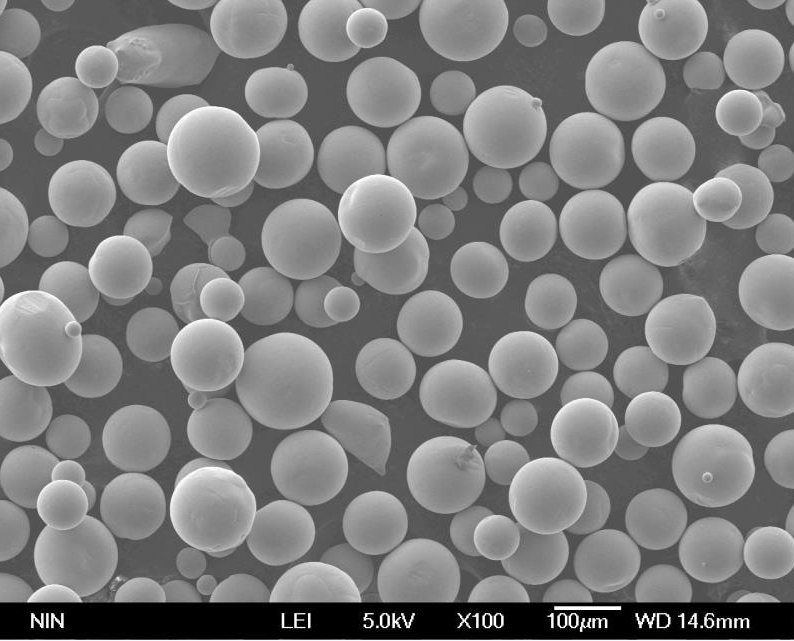
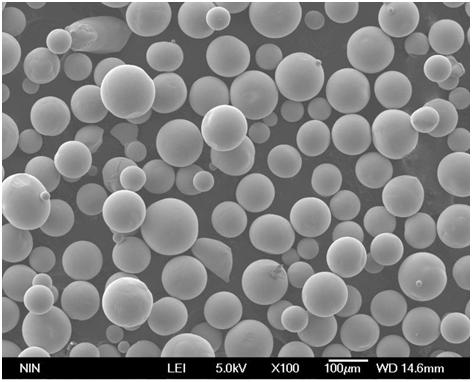
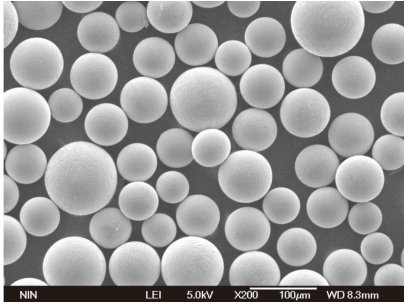
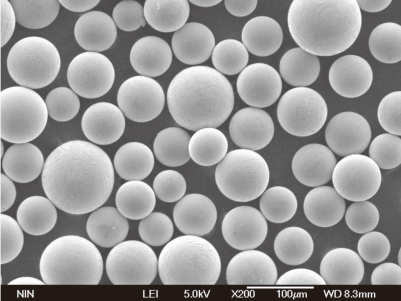
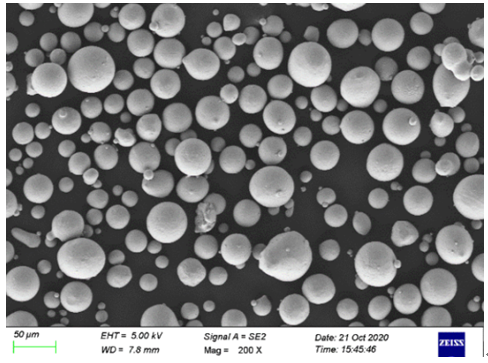
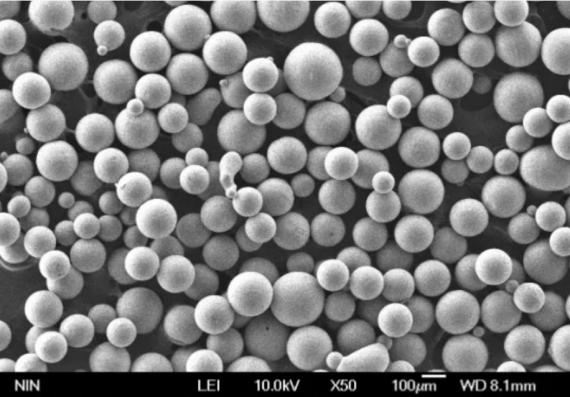
Spécifications, tailles et normes des poudres d'alliages de diffusion
Lors de la sélection des poudres d'alliage de diffusion, il est essentiel de prendre en compte les spécifications, les tailles et les normes qui correspondent aux exigences de votre application. Voici un aperçu détaillé :
Spécifications et normes
| Spécifications | Description |
|---|---|
| Normes ASTM | Normes communes pour les propriétés des matériaux et les méthodes d'essai. |
| Normes ISO | Normes internationales de cohérence et de qualité. |
| Normes AMS | Spécifications des matériaux aérospatiaux pour l'assurance des performances. |
Tailles et qualités
| Taille | Description |
|---|---|
| Bien | Généralement utilisé pour les revêtements et les composants de précision. |
| Moyen | Utilisé couramment pour des applications de fabrication générale. |
| Grossière | Utilisé pour les grands composants nécessitant une grande intégrité structurelle. |
Fournisseurs et détails des prix pour la poudre d'alliage de diffusion
Trouver des fournisseurs fiables et comprendre les détails des prix est essentiel pour la planification du budget et l'approvisionnement.
Fournisseurs principaux
| Fournisseur | Localisation | Spécialisation | Contact |
|---|---|---|---|
| Hoganas AB | Suède | Large gamme de poudres métalliques | Site web de Höganäs |
| Technologie des charpentiers | ÉTATS-UNIS | Alliages à haute performance | Site web de Carpenter Tech |
| Technologie des matériaux Sandvik | Suède | Matériaux et alliages avancés | Site web de Sandvik |
| GKN Hoeganaes | ÉTATS-UNIS | Solutions de poudres métalliques | Site web de GKN |
| ATI Metals | ÉTATS-UNIS | Matériaux et composants spécialisés | Site web d'ATI Metals |
Détails des prix
| Produit | Fourchette de prix (par kg) |
|---|---|
| Inconel 718 | $60 – $80 |
| Stellite 6 | $50 – $70 |
| Hastelloy X | $80 – $100 |
| MP35N | $100 – $150 |
| Triballoy T-800 | $70 – $90 |
| Nimonic 90 | $70 – $90 |
| Waspaloy | $100 – $130 |
| Charpentier 20 | $40 – $60 |
| Molybdène TZM | $120 – $150 |
| Haynes 188 | $90 – $110 |
Avantages et limites de la poudre d'alliage par diffusion
Chaque matériau a ses forces et ses faiblesses. Examinons les avantages et les inconvénients des poudres d'alliage de diffusion.
Avantages
| Avantage | Description |
|---|---|
| Propriétés améliorées | Propriétés mécaniques et physiques supérieures à celles des alliages traditionnels. |
| Polyvalence | Applicable dans une large gamme d'industries et d'applications. |
| Durabilité améliorée | Allongement de la durée de vie des composants grâce à une meilleure résistance à l'usure et à la corrosion. |
| Performance à haute température | Conserve sa résistance et sa stabilité à des températures élevées. |
Limites
| Limitation | Description |
|---|---|
| Coût | Généralement plus chères que les poudres métalliques standard. |
| Fabrication complexe | Nécessite des techniques de traitement spécialisées. |
| Disponibilité | Fournisseurs limités et délais de livraison parfois longs. |
Comparaison Poudre d'alliage de diffusion Modèles
Pour choisir la bonne poudre d'alliage de diffusion, la comparaison de différents modèles peut vous aider à prendre une décision éclairée.
Comparaison des modèles les plus courants
| Modèle | Résistance aux températures élevées | Résistance à la corrosion | Résistance à l'usure | Coût |
|---|---|---|---|---|
| Inconel 718 | Excellent | Excellent | Bon | Haut |
| Stellite 6 | Très bon | Bon | Excellent | Moyen |
| Hastelloy X | Excellent | Très bon | Bon | Haut |
| MP35N | Très bon | Excellent | Très bon | Très élevé |
| Triballoy T-800 | Bon | Bon | Excellent | Moyen |

FAQ
Nous allons répondre à quelques questions courantes sur les poudres d'alliage de diffusion.
| Question | Réponse |
|---|---|
| Qu'est-ce que la poudre d'alliage de diffusion ? | Poudre métallique traitée pour créer un mélange homogène de différents éléments. |
| Quels sont les avantages de l'utilisation des poudres d'alliage de diffusion ? | Amélioration des propriétés mécaniques, de la résistance à la corrosion et des performances à haute température. |
| Quelles sont les industries qui utilisent les poudres d'alliage de diffusion ? | Aérospatiale, automobile, médecine, pétrole et gaz, électronique, défense, etc. |
| Comment les poudres d'alliage de diffusion sont-elles fabriquées ? | Grâce à des processus spécialisés tels que l'atomisation et la liaison par diffusion. |
| Puis-je utiliser des poudres d'alliage de diffusion pour l'impression 3D ? | Oui, de nombreuses poudres d'alliages de diffusion conviennent à la fabrication additive. |
| Quel est le coût des poudres d'alliage de diffusion ? | Les prix varient selon les modèles, mais se situent généralement entre 40 et 150 dollars par kg. |
| Qui sont les principaux fournisseurs ? | Höganäs AB, Carpenter Technology, Sandvik Materials Technology, GKN Hoeganaes, ATI Metals. |
